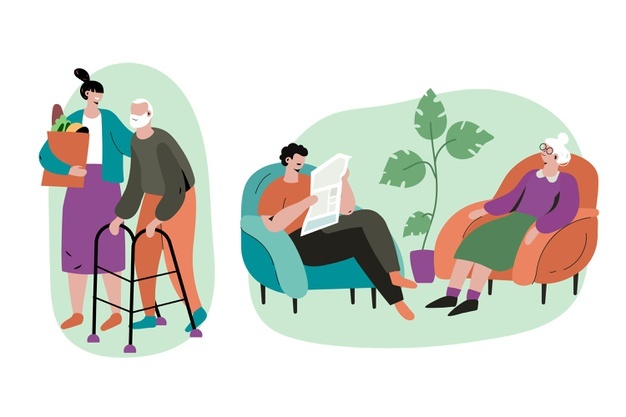You have to admit that the existence of electricity had immense importance for humankind. It changed people’s way of living for the better. Electricity became essential from entertainment, lighting, and several convenience appliances for the kitchen or bedroom.
But sometimes, convenience comes with a price. And safety becomes a primary concern, particularly for senior citizens. If you are concerned about your parents’ safety at home, in this article, you’ll learn some tips to ensure that they are safe while you are away.
Possible Electrical Issues at Home
Electricity can be hazardous without proper management. You should replace unmaintained wiring, poorly installed lighting, and outdated electrical outlets as soon as possible to prevent fires or major electric shocks. Otherwise, your parent’s property can be damaged, or worse, they might suffer the consequences. Knowing these warning signs of electrical system failures can help you keep your parent’s home safe:
Safety Tips
It just takes one faulty wiring to start a fire that can burn your senior parent’s property. For their safety, it’s vital to practice preventive measures. It’s easy to be careful in using light bulbs, electrical appliances, and extension cords. Here are six ways you can keep your elderly parents safe in their homes:
1. Replace or repair damaged electrical cords
Craked and broken cords are a primary safety risk for houses. Ensure to check all extension and power cords regularly to see if you need to call a professional to repair any exposed or frayed wires. Give your parents easy access to electrical outlets by adding a few in areas they can easily reach. However, avoid using too much wiring under their furniture or carpet. Carpets can cause cords to overheat, and furniture can break wires and affect cord insulation.
2. Unplug unused appliances
One of the most basic safety rules that many people ignore is unplugging unused appliances. Apart from being a habit that can prevent fire hazards, it will also help your senior parents save power. Ask your parents to practice unplugging appliances when not in use for their safety.
In addition, inform them that it’s wiser to charge their devices during the day so no devices will be left plugged through the night. If your parents own medical alert devices for seniors, ask them to place these devices in areas they can quickly spot these devices. Although these devices do not typically overheat, it’s still safer to put them in visible areas. Similarly, consider replacing your parents’ old and faulty appliances for total safety.
3. Add more lights
Dark corners and hallways without natural lighting can put your parents at risk of falls and injuries. Declining eyesight is normal in older adults, and many usually overlook this aspect. Dim lights can make it hard for them to see, especially at night, so make sure they have enough lights in bathrooms, stairs, and corridors. Be sure to use light-emitting diodes (LEDs) for less power consumption but brighter output.
4. Install smoke alarms
Even experts agree that fatal fire events happen when the residents are sound asleep. And because smoke can make you sleep deeper, it becomes especially crucial to add smoke alarms and warning systems in your senior parents’ home.
Make the alarms more helpful by installing them in your parent’s bedroom and several areas of the house. If either of your parents has a hearing disability, set up alarms that vibrate or flash lights during emergencies.
5. Keep electrical systems far from water
Placing electrical systems near water is a big mistake. Ensure that your senior parent’s appliances are not located in areas with water or leaks. Otherwise, they might suffer a critical electric shock. It’s important to keep devices and electricity away from plant pots, aquariums, showers, and bathtubs. This is a primary electric rule that everyone should follow.
6. Protect all outlets
All outlets must be tamper-resistant to prevent electrical fire or electrocution, whether you have seniors or kids at home. Take the time to check all outlets and ensure that they have at least one layer of protection. Outlets must be cool to the touch and always in excellent working condition.
Keeping these safety tips in mind will help you keep your senior parent’s home safe. While caring for your older parents is a demanding and complicated job, their health and safety should still be your top priority.
Suppose you can’t be physically present to check their home and electric systems. In that case, you can hire a professional to perform the inspection. Overall, it’s all about going beyond your limits to ensure that your parents are safe at home.

Be the first to comment on "Elderly Care: Protecting Senior Citizens from Home Hazards"